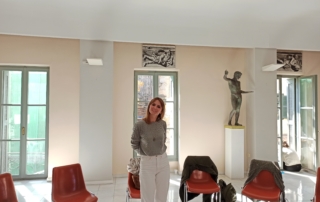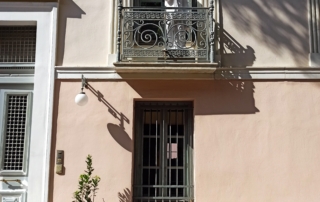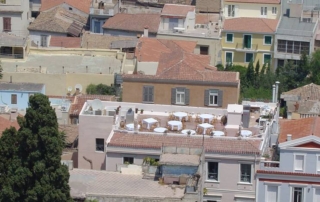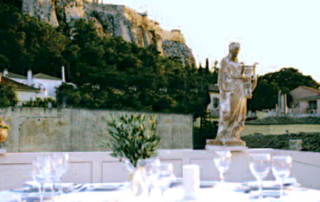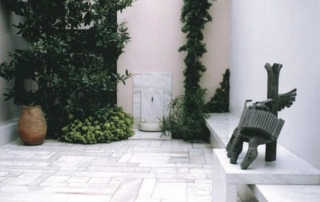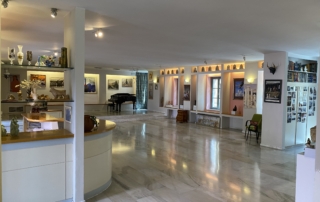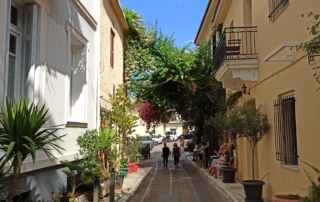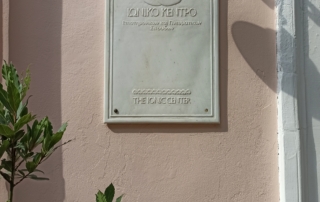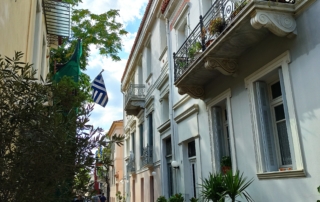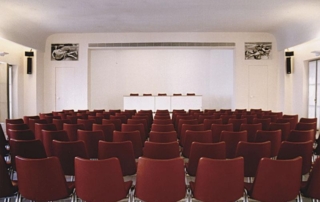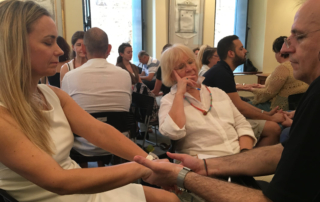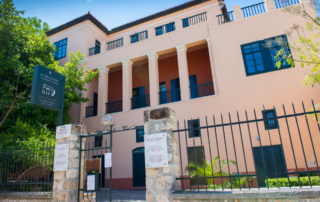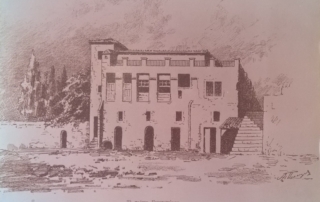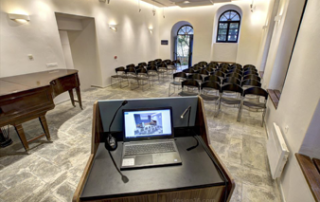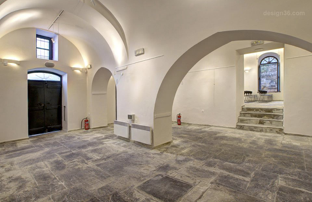Venue
The in-person Symposium will be held in two separate buildings in the heart of Athens, in the historic area of Plaka:
the Ionic Centre (the neoclassic style building of the Ionic Centre for Scientific, Cultural and Spiritual Study)
and the Athens University History Museum (the historic building, which dates back more than 400 years).Both of them are centres of culture, education and reflections.
Short description of both places:
The Ionic Centre is an organisation aspiring to create a place where academic learning and spiritual development meet in harmony. It took its name from the ancient traditions of Ionia, birthplace of the Homeric poet-priests, and of Heraclitos, Democritos and Pythagoras.
The Athens University History Museum housed (1837-1841) the first University of the independent Greek state. For about a century, Athens University was the only institution for higher education in Greece. This is the reason why, besides the history of the University, the Athens University History Museum also illustrates the history of the newly founded Greek State.
Athens is a city with a long history and the area where the Symposium will take place is full of memories from ancient Greece. Very close to the building that will host the work of the Symposium are the Acropolis hill and the Parthenon, the Ancient Agora, the Athens Observatory, the Odeon of Herodes Atticus, the temple of Hephaestus and, in front of the Ionian Center, the Tower of the Winds, the first meteorological station in the world.
At the same time, we will be in the center of modern Athens in a particularly picturesque area, Plaka, where you can walk through the beautiful streets during our breaks, enjoy the Attic sky and the sun, try Greek cuisine, enjoy musical groups and relax to return to our work refreshed.
We hope you really get a chance to get a taste of the Greek spirit and culture during your short stay in Athens.
The Ionic Center
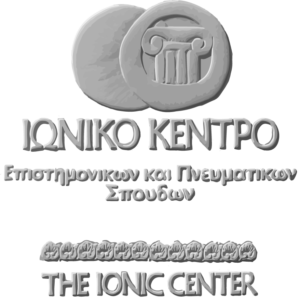
for Scientific, Cultural and Spiritual Studies
The Ionic Center offers the following halls, spaces and services for events:
- Hall IONIA (Ιονία): Lobby for presentations, receptions
- Hall AERIDES (Αέρηδες/Winds): Conference Room, Speeches, Interviews
- Hall APELLIS (Απελλίς): Exhibition Hall, seminars (expandable to the Terrace)
- Hall THEOREIO (Θεωρείο): for receptions
- AeTRIUM (Αίθριο)
- DOMA-Loft (Δώμα): overlooking the Erechtheion and the Acropolis
- EPICUREOUS (Επικούρειος): Cafe-Restaurant
- Halls for individual meetings, Library – Reading Place, Art and Book Shop
- Reception and Secretariat Support, Press and Preview Room
Location
The Ionic Centre is located in a neo-classical style building in Plaka, minutes’ walk from the walls of the Acropolis and the Parthenon. Next to the Aerides, the Tower of the Winds, Hadrian’s Library and the Roman period Agora, The Ionic Centre is surrounded by monuments and public buildings of the city. Nearby it, too, are the center of modern Athens, Syntagma Square, the Greek Parliament and a host of fine museums, such as the New Acropolis Museum, the Museum of Cycladic Art, the Benaki, the Greek Folk Art, Traditional Folk Instruments, the Ceramics and many others. There, a few minutes walk is the Center of the modern City, Syntagma Square and the greek Parliament.
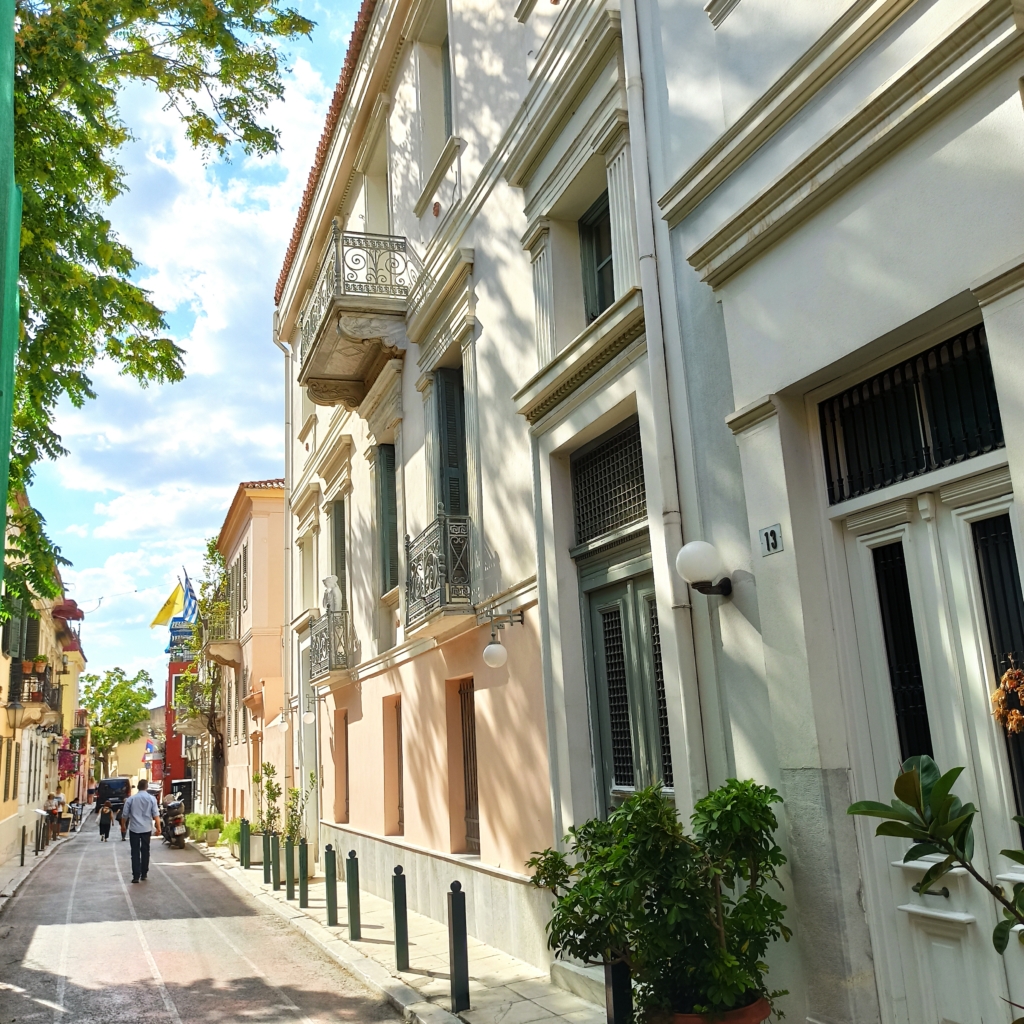
[The Ionic Center]
Located in an ideal setting for academic conferences and, generally, cultural and scientific gatherings,
in the center of the contrasting ancient and modern city,
The Ionic Center is easily accessible by Metro trains, by bus and private transport.
Address: Lysiou Street 11, Athens 10556, Greece
Telephone: +30 2103246614
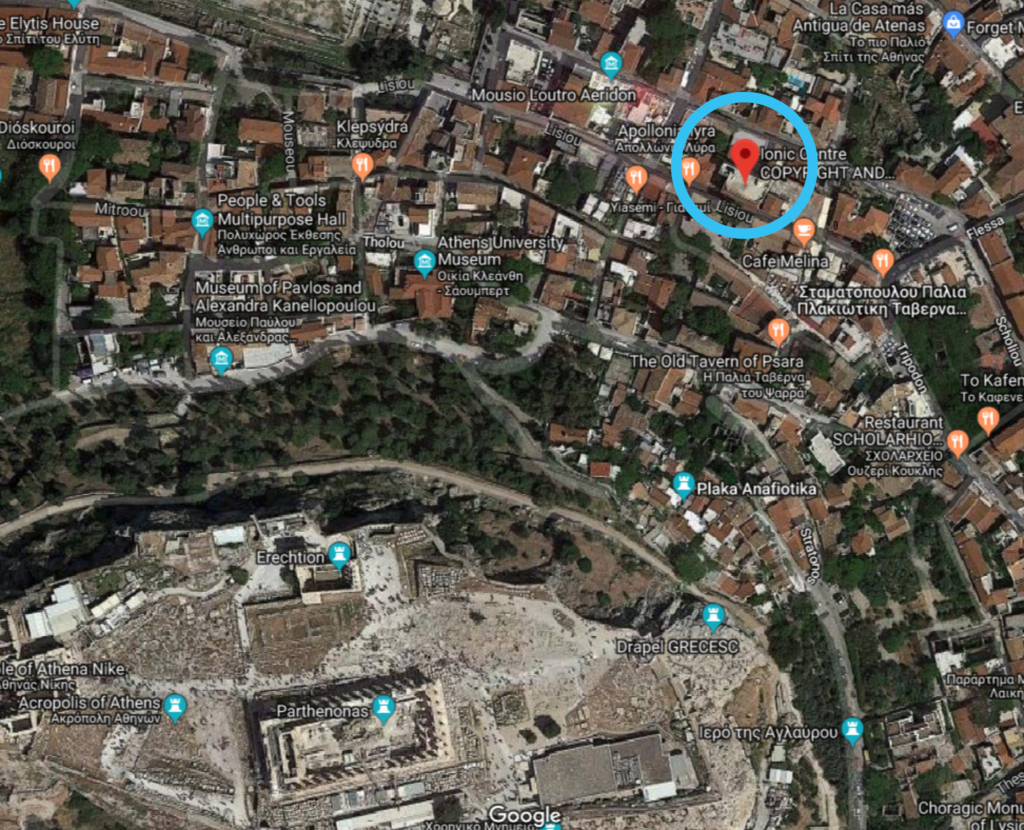
History
(From the Ionic Center Website > History)
The world today is going through a political, technological and spiritual crisis; a crisis in its dual sense; the negative and also that which is positive; the sense of arriving at decisions after passing through trial. To a great extent this crisis is a result of a special relationship that the Western world has with that of the East, particularly through Greece, their main crossing point. In the center of the peculiar causes of this crisis one may find Greece; there one may find, too, the start of the thread of Ariadne. There is a balance; in the center of the two worlds, of the two hemispheres; of east and west, of spirit and science, of past and future. Our aim is to create a Hellenic and World place for exploring ideas; an international space of study and practice; peaceful, without prejudice, liberal and open, where a person, whether a native Hellene or born of another land, can live and study and work in a cooperating community.
Isidoros Kioleoglou, Founder of The Ionic Center
from the Chios Commencement Address, July 27, 1980
Brief History
The Ionic Centre for Scientific, Cultural and Spiritual Study was founded in 1977 on the Aegean island of Chios. After many years of activity on the island, the Centre established a second home in Athens, in the historic area of Plaka, at the foot of the Acropolis. A developing important for learning and research in the area, The Ionic Centre provides a setting for the study of culture while it places a focus on the philosophical and scientific questions facing presently mankind.
In Chios – The Ionic Centre has been housed in a large old mansion by the city’s port. Currently though, the facility has not been in operation. In its place, the Centre is preparing to build another facility by “Homer’s Rock”, a Bronze Age period cult site where later probably thrived there the “School” of the Homerides poet-priests. There, The Ionic Centre has acquired land and plans to build a modern facility to house its educational and cultural activities on the island.
Map – The Ionic Center
The Athens University History Museum
(from https://en.uoa.gr/about_us/museums/athens_university_history_museum/)
The Athens University History Museum (Tholou 5) spaces:
Ground floor halls: Professor Elias Krispis Hall 1 and Hall 2
Ground floor yard
Smaller 1st floor seminar room
1st floor yard
The Athens University History Museum is located in one of the oldest residential buildings still standing in Athens today. The building dates long before the 18th century and it is situated beneath the imposing heights of the Acropolis with a panoramic view of the old city centre.
The historical building was the home of the architect Stamatios Kleanthis and is also known as the “Old University”, since it housed (1837-1841) the first University of the independent Greek state. For about a century, Athens University was the only institution for higher education in Greece. This is the reason why, besides the history of the University, the Athens University History Museum also illustrates the history of the newly founded Greek State. The Museum was inaugurated in 1987, in the context of the celebration for the 150th Anniversary of the University of Athens.
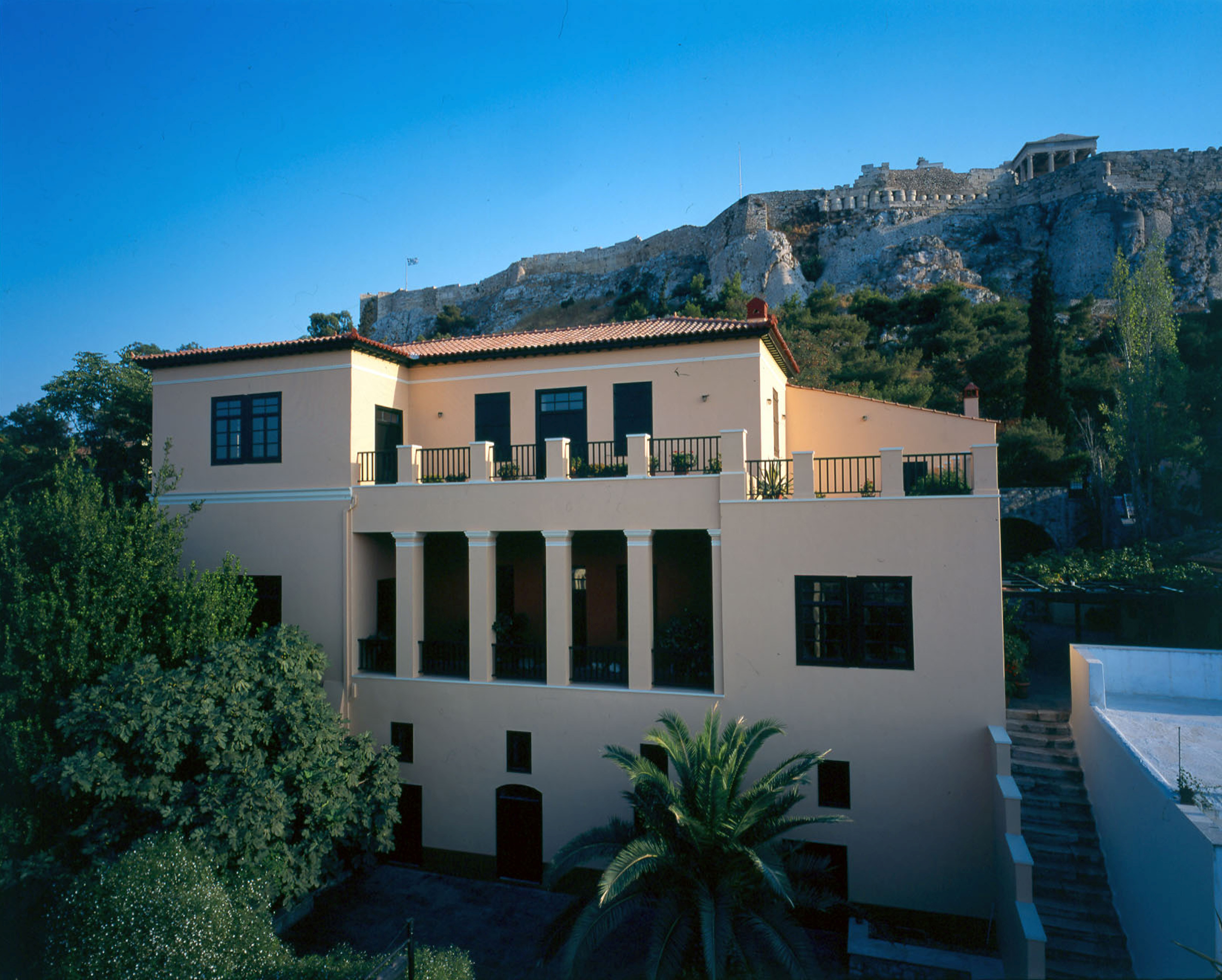
[History Museum of the University of Athens]
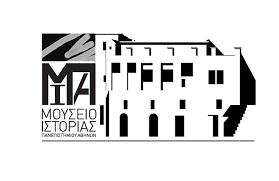
Address: Tholou 5, Plaka, 10556 Athens, Greece
Tel: +30 2103689502-6
e-mail: museum@uoa.gr
Website: http://www.historymuseum.uoa.gr
Facebook: https://www.facebook.com/profile.php?id=100063839551554
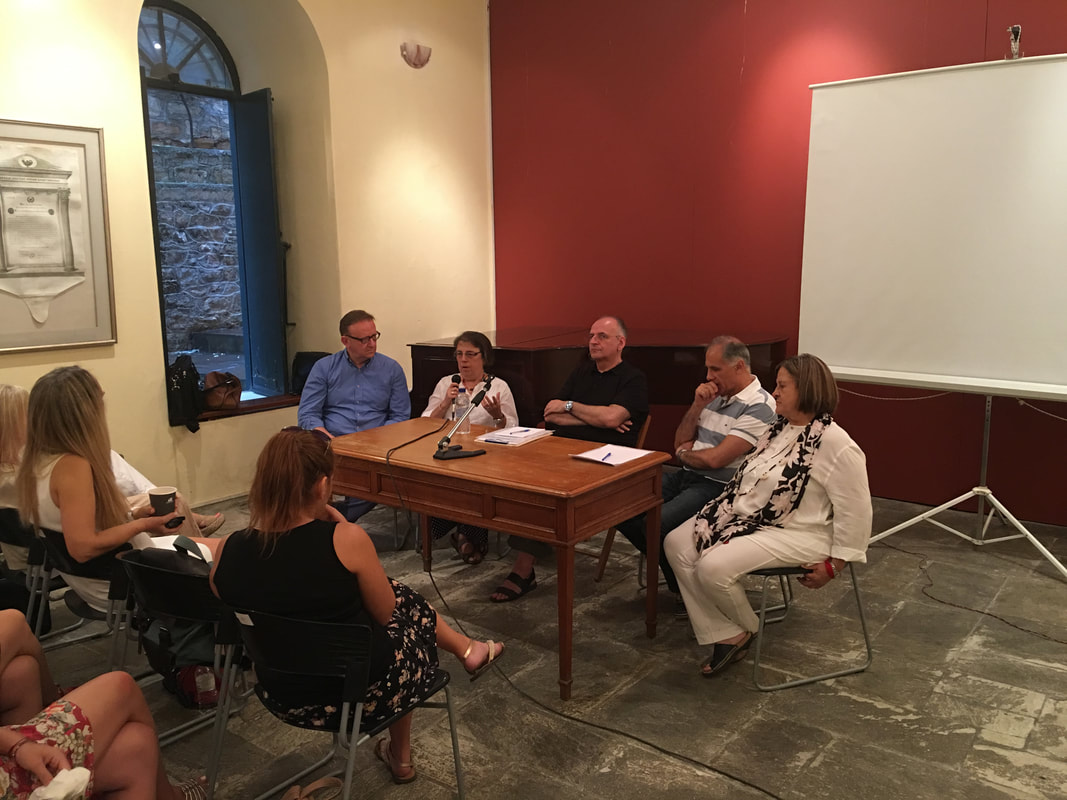
[Photograph from inside the building]
Map
Map – Athens University History Museum
The history of the National and Kapodistrian University of Athens (NKUA) becomes digital
The e-NKUA guides you through it through your screen

